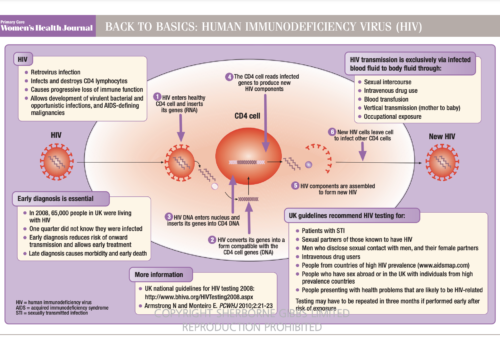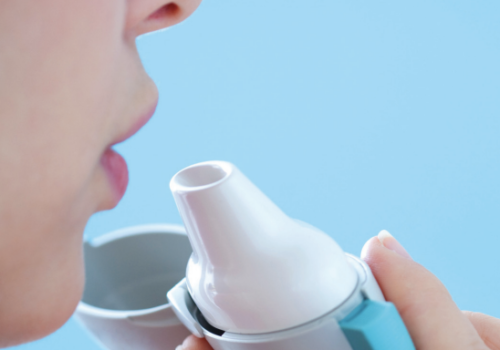The intrauterine system (IUS) is a very effective long-acting reversible contraceptive (LARC) for appropriate women. But myths and misconceptions may cause some patients to opt for other, less reliable or suitable methods. Addressing frequently asked questions will help GPs to prescribe with confidence and enable women to make informed decisions about their contraception.
Back to Basics: Human Immunodeficiency Virus (HIV)
Vaginal thrush (Candidiasis)
Older people and HIV: A call to action
Thanks to effective treatment, people with HIV are living longer than ever. Older people are now the fastest growing group with HIV in the UK, and as many as one in five adults accessing care is now aged over 50 years. But treatment does not mean cure, and a targeted approach to support is needed, as well as action to halt the growing numbers of older women and men affected by HIV.
Identifying and supporting women with puerperal psychosis
The birth of a new baby is usually seen as a cause for celebration. But following delivery, a woman has a greater likelihood of psychiatric admission to hospital than at any other point in her life. This is often due to puerperal psychosis, a serious mental illness requiring prompt recognition and medical treatment. Primary care professionals are well placed to identify early symptoms to minimise risks to mother and baby.
COPD: Serious, chronic and becoming more common in women
Chronic obstructive pulmonary disease (COPD) is a largely preventable, slowly progressive, inflammatory disease. Rates of COPD are rising faster in women than in men, yet women are less likely to be diagnosed. There is currently no cure, but best-practice management outlined in recently updated NICE guidelines can help to improve patients’ symptoms and quality of life.
Training for nurses improves care for women
Many advanced nurse practitioners (ANPs) are working in innovative ways to enhance patient care in general practice. But little specific training has been available for ANPs in women’s health. This article outlines how a training course was developed specifically to improve and maintain local ANPs’ competencies in managing women’s health in primary care.
Take a sexual history in primary care
Many primary care clinicians worry about how to take an appropriate sexual history. Raising the issue seems straightforward when a woman has symptoms or when contraception or cervical screening feature in a consultation. The challenge occurs when the possibility of sexual health issues may not be so apparent to the patient.
Endometrial ablation
Is general practice the optimal setting for the recognition of statin-induced myotoxicity?
Previous research has shown that routine monitoring appears to add little to the prognostication of incipient statininduced myotoxicity (SIM) in the primary care setting. In view of this, and the fact that there are now millions of patients on statins, it seems of practical value to delve deeper into the symptomatology of SIM. : To estimate the prevalence of SIM in statin users as compared to non-users, and whether family practice is the ideal setting to identify SIM.
























